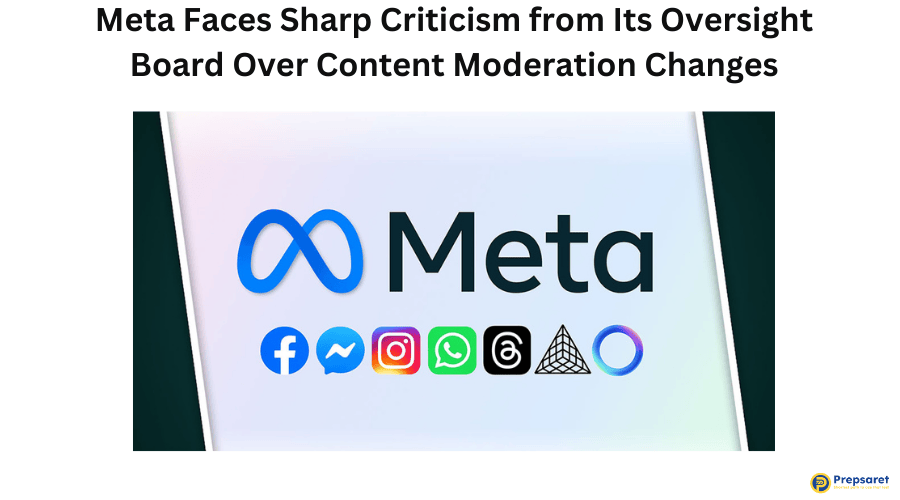Meta Faces Sharp Criticism from Its Oversight Board Over Content Moderation Changes
Meta Platforms came under intense scrutiny on Wednesday as its independent Oversight Board condemned the company for swiftly rolling back key content moderation efforts.
The board’s statement came in response to Meta’s January policy changes, which relaxed controls over discussions on topics like gender identity and immigration, just as President Donald Trump began his second term.
The Oversight Board, which operates independently though funded by Meta, criticized the company for bypassing standard procedures and failing to publicly explain whether any human rights impact review had been conducted prior to implementing the changes.
It warned that the abrupt nature of the policy shift raised serious transparency and accountability concerns.
Zuckerberg’s move appears to be part of a broader strategy to repair relations with conservatives, including Trump, by reversing some of the more restrictive measures Meta had adopted over the past decade to curb misinformation and online abuse.
In defending the shift, Zuckerberg stated that previous efforts had resulted in “too many mistakes and too much censorship,” but the company offered no evidence to support this claim.
Related story: Key Shifts at Intel as Investors Await Results Under New CEO Lip-Bu Tan
Concerns Over Global Impacts and Transparency
One of the most notable elements of the overhaul was the dismantling of Meta’s U.S.-based fact-checking program. The company also eased enforcement on language previously flagged as offensive—such as posts portraying gay people as mentally ill or objectifying women.
It simultaneously limited proactive monitoring, redirecting its automated systems toward detecting more severe violations such as terrorism, child exploitation, and fraud.
As part of its ongoing work, the Oversight Board issued its first set of rulings since the January changes.
While the board upheld Meta’s decisions in some instances—such as leaving up posts about transgender access to public restrooms—it also instructed the company to remove content that included racial slurs.
Meta acknowledged the rulings that favored free expression but remained silent on those calling for content removal.
In total, the board made 17 recommendations. Among them were calls to reinforce anti-bullying enforcement, clearly define banned hate ideologies, and evaluate the reach and effectiveness of Meta’s new “Community Notes” system.
This tool, which replaced collaborations with traditional fact-checkers, is modeled on a similar feature used by Elon Musk’s X platform.
The board urged Meta to publish performance data for Community Notes every six months and to study whether the January changes might unevenly impact users in politically unstable or crisis-affected countries.
Continue reading: Google to Challenge Part of U.S. Court Ruling in DOJ Monopoly Case

